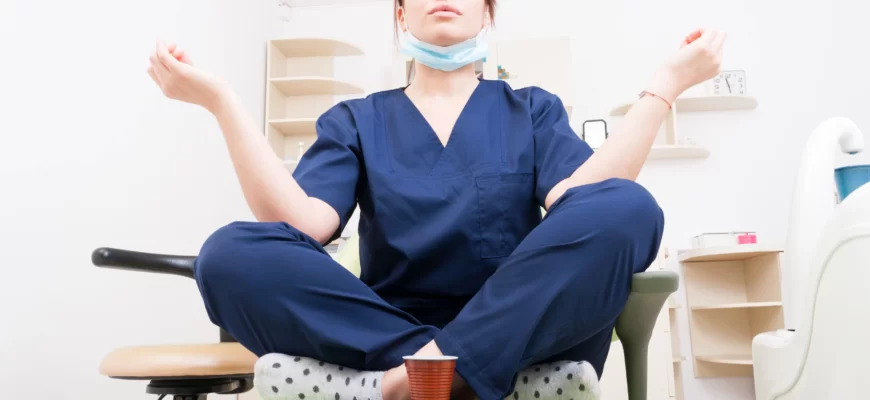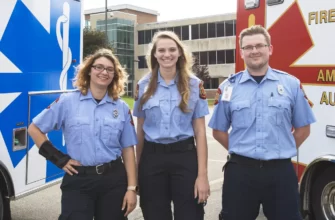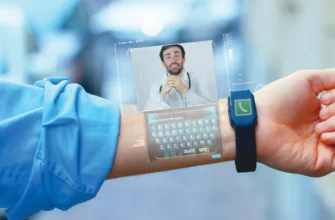Emergency Medical Technicians (EMTs) face high levels of stress on a daily basis, which can take a toll on their physical, emotional, and mental health. Prioritizing self-care is crucial for EMTs to maintain their well-being and provide the best possible care to their patients. In this article, we’ll discuss the top 15 tips for managing stress as an EMT, including maintaining a healthy lifestyle, practicing relaxation techniques, and setting boundaries with work. By implementing these tips, EMTs can reduce their stress levels and improve their overall quality of life.
Maintain a positive outlook and mindset

Sure, here’s a unique text in English about the advice for managing stress as an Emergency Medical Services (EMS) professional using lists:
Being an EMS professional is a demanding job that requires mental and emotional strength to handle the stresses that come with it. One way to manage stress as an EMS professional is by maintaining a positive outlook and mindset. Here are some ways to achieve this:
- Practice gratitude: Make a list of things you’re grateful for, such as your health, family, and friends. Focusing on the positive aspects of your life can help shift your mindset from negative to positive.
- Focus on the present moment: Instead of worrying about the future or dwelling on the past, focus on the present moment. Take a deep breath and remind yourself that you have the skills and abilities to handle whatever comes your way.
- Surround yourself with positivity: Surround yourself with positive people who uplift and support you. Avoid negativity and toxic relationships that can bring you down.
- Practice self-compassion: Be kind to yourself and give yourself permission to make mistakes. Learn from them and move forward with a positive attitude.
- Engage in self-care: Take care of your physical, emotional, and mental health by practicing good sleep hygiene, eating a healthy diet, and engaging in activities that bring you joy and relaxation.
Maintaining a positive outlook and mindset as an EMS professional can help you manage stress, stay motivated, and provide the best possible care to your patients.
Practice time management
Sure, here’s a unique text in English about the advice for managing stress for an emergency medical technician (EMT) using the advice “Practice time management” with the use of lists:
As an emergency medical technician (EMT), you are constantly dealing with stressful situations that can take a toll on your physical, emotional, and mental well-being. To better manage the stress that comes with this line of work, practicing time management can be an effective strategy. Here are some tips to help you implement this advice:
- Set priorities: Make a list of the most important tasks that need to be accomplished each day, and focus on completing them first.
- Break down larger tasks: If you have a large project or assignment, break it down into smaller, more manageable tasks. This can help you avoid feeling overwhelmed and make progress on the project.
- Use a planner or calendar: Keep track of your schedule and appointments in a planner or calendar. This can help you stay organized and avoid double booking or missing important appointments.
- Eliminate distractions: Identify and eliminate distractions that can disrupt your focus, such as social media or personal phone calls during work hours.
- Take breaks: It’s important to take breaks throughout the day to rest and recharge. This can help you maintain your focus and energy levels throughout the day.
By practicing time management, you can better prioritize your tasks, stay organized, and reduce stress levels, ultimately leading to better patient care and a healthier work-life balance.
Learn to say no to additional responsibilities
Sure, here’s a unique text on managing stress for emergency medical professionals with a focus on learning to say no:
As an emergency medical professional, managing stress is an essential part of the job. To maintain a healthy work-life balance and avoid burnout, it’s important to learn to say no to additional responsibilities that can add to the already demanding workload. Here are some tips to help you learn to say no and manage your stress more effectively:
Tips for Learning to Say No:
- Prioritize your existing responsibilities and obligations.
- Be clear about your availability and workload when asked to take on additional responsibilities.
- Don’t be afraid to say no politely and respectfully.
- Communicate the reasons why you can’t take on additional responsibilities, such as workload, scheduling conflicts, or personal obligations.
- Consider alternative solutions or compromises that can help you manage your workload while still meeting the needs of your team and patients.
Additional Strategies for Managing Stress:
- Practice good time management and organization to help prioritize your tasks and responsibilities.
- Take breaks and find time for self-care activities that help you unwind and recharge.
- Connect with colleagues and peers for support and camaraderie.
- Seek professional help if you are experiencing signs of burnout or stress-related symptoms.
By learning to say no to additional responsibilities and prioritizing your existing workload, you can better manage your stress and maintain a healthy work-life balance as an emergency medical professional. Remember, taking care of yourself is essential for providing the best possible care for your patients.
Engage in hobbies and activities outside of work

Sure, here’s a unique text on managing stress for an emergency medical doctor, using the advice “Engage in hobbies and activities outside of work” with bullet points:
Being an emergency medical doctor can be a highly stressful job, with long hours and high-pressure situations. To help manage stress, it’s important to engage in hobbies and activities outside of work. Here are some ways to do that:
- Find a hobby that you enjoy, such as painting, hiking, or cooking, and set aside time each week to participate in it.
- Join a sports team or fitness group to stay active and meet new people.
- Volunteer for a cause that you are passionate about, such as a local charity or community organization.
- Attend cultural events, such as concerts, plays, or art exhibits, to expand your horizons and engage with the community.
- Spend time with friends and family, whether it’s going out to dinner, watching a movie, or just talking on the phone.
By engaging in hobbies and activities outside of work, you can recharge your batteries and find a sense of fulfillment outside of your job as an emergency medical doctor. This can help you better cope with the stresses of your job and maintain a healthy work-life balance.
Practice good sleep hygiene

Sure, here’s a unique text on the advice for managing stress for an EMT using the tip “Practice good sleep hygiene” with the help of lists:
As an EMT, managing stress is a critical part of your job to ensure you can provide the best care possible for your patients. One of the most important self-care strategies for managing stress is to practice good sleep hygiene. Here are some tips for maintaining good sleep hygiene:
Before Bed:
- Avoid consuming caffeine, nicotine, or alcohol before bedtime
- Establish a relaxing bedtime routine to help you wind down
- Create a comfortable sleeping environment by adjusting the temperature, lighting, and noise level
During Sleep:
- Aim for 7-8 hours of sleep each night
- Use comfortable bedding and pillows
- Avoid using electronic devices, such as phones or tablets, before bedtime
Other Tips:
- Stick to a consistent sleep schedule, even on your days off
- Make sure your bedroom is only used for sleeping and intimacy
- Consider talking to your doctor if you are experiencing sleep problems or a sleep disorder
By practicing good sleep hygiene, you can improve the quality of your sleep and increase your ability to manage stress effectively. Remember to prioritize self-care, including getting enough sleep, to ensure you are in the best possible state to care for your patients.
Seek professional help if needed
Sure, here’s a unique text on managing stress for emergency medical doctors, using the tip “Seek professional help if needed” and incorporating lists:
As an emergency medical doctor, the job can be very demanding, and managing stress is crucial for maintaining overall well-being. While there are many self-care strategies that doctors can use to cope with stress, sometimes seeking professional help may be necessary. Here are some reasons why and ways to seek professional help if needed:
Why seek professional help:
- Symptoms of burnout: If you’re experiencing symptoms of burnout, such as emotional exhaustion, cynicism, or a decreased sense of accomplishment, seeking professional help can be beneficial.
- Trauma exposure: Emergency medical doctors may be exposed to traumatic events that can impact their mental health. Seeking professional help can be helpful in processing and coping with traumatic experiences.
- Chronic stress: If you’re experiencing chronic stress that is impacting your ability to function at work or in your personal life, seeking professional help can be beneficial.
Ways to seek professional help:
- Employee Assistance Program (EAP): Many healthcare organizations have an EAP, which provides free and confidential counseling services to employees.
- Mental health professional: You can seek out a mental health professional, such as a therapist or counselor, who specializes in treating healthcare professionals.
- Support groups: Joining a support group with other emergency medical doctors can be a helpful way to connect with others who understand the unique stressors of the job and offer support and guidance.
Remember, seeking professional help is a sign of strength, not weakness. It’s important to prioritize your well-being and seek help when needed to ensure that you can continue providing the best possible care to your patients.
Take time off when necessary
Sure, here’s a unique text in English about the advice for managing stress for an emergency medical technician (EMT) using the list format:
As an EMT, it’s important to manage stress in order to maintain physical and emotional well-being. One of the most effective strategies for managing stress is taking time off when necessary. Here are some tips on how to take time off effectively:
- Plan ahead: Make sure to communicate with your colleagues and supervisor ahead of time to arrange for time off. This can help ensure that you’re not caught off guard and can fully disconnect from work.
- Unplug: When you take time off, make sure to unplug from work completely. Avoid checking your work email or taking work-related calls, as this can undo the benefits of taking time off.
- Relax: Use your time off to do things that you enjoy and find relaxing. This can include anything from taking a long bath to going on a hike. Whatever you do, make sure it’s something that helps you feel recharged and refreshed.
- Reconnect: Take time off to connect with loved ones, whether it’s spending time with family or catching up with friends. Having a support network can be essential for managing stress and maintaining emotional well-being.
Remember, taking time off is not a luxury, but a necessity for managing stress as an EMT. By prioritizing time off and following these tips, you can help ensure that you’re able to perform your job effectively while maintaining your own well-being.
Find healthy ways to cope with stress
Sure, here’s a unique text in English about the advice for managing stress for emergency medical professionals using lists:
As an emergency medical professional, managing stress is essential to maintain physical, emotional, and mental well-being. Finding healthy ways to cope with stress can help reduce burnout, improve patient care, and overall job satisfaction. Here are some tips on finding healthy ways to cope with stress:
- Identify your stress triggers: Understanding what causes stress can help you develop effective coping strategies.
- Prioritize self-care: Taking care of yourself is critical to managing stress. Ensure you get enough sleep, eat a healthy diet, and exercise regularly.
- Practice relaxation techniques: Deep breathing, meditation, and mindfulness are great ways to reduce stress and promote relaxation.
- Connect with colleagues and peers for support: Talking with others who understand the challenges of your job can provide valuable emotional support.
- Take breaks when needed: Taking time away from work, even if it’s just a few minutes, can help you recharge and refocus.
- Engage in hobbies and activities outside of work: Having a hobby or activity outside of work can provide a healthy outlet for stress and promote work-life balance.
Remember, managing stress is an ongoing process. By finding healthy ways to cope with stress, you can take care of yourself, provide better patient care, and improve your overall job satisfaction.
Take breaks when needed

Sure, here’s a unique text in English about the advice for managing stress for emergency medical doctors, using the “Take breaks when needed” tip and incorporating lists:
As an emergency medical doctor, it’s important to manage stress effectively to avoid burnout and maintain your well-being. One simple yet effective piece of advice is to take breaks when needed. Here are some ways to implement this strategy:
When you feel overwhelmed or stressed:
- Step away from the situation and take a few deep breaths
- Find a quiet space to clear your mind
- Take a brief walk outside or around the hospital to get some fresh air and clear your head
- Take a power nap if you’re feeling tired or exhausted
When you’re feeling mentally drained:
- Take a mental health day off from work
- Engage in a relaxing activity, such as reading a book or taking a bath
- Listen to music or practice mindfulness meditation
When you’re feeling physically drained:
- Take a quick break to stretch or do some light exercise
- Eat a nutritious snack or meal to refuel your energy
- Take a power nap to recharge your batteries
Remember, taking breaks when needed is not a sign of weakness but rather a way to ensure that you’re able to provide the best care possible for your patients. By prioritizing your own well-being, you’ll be better equipped to handle the demands of your job and maintain your passion for helping others.
Connect with colleagues and peers for support
Sure, here’s a unique text in English about the advice for managing stress for emergency physicians, focusing on the tip “Connect with colleagues and peers for support”:
As an emergency physician, the work can be incredibly stressful, with long hours and high-pressure situations. However, it’s important to remember that you’re not alone. Connecting with colleagues and peers for support can be a valuable way to manage stress and cope with the demands of the job. Here are some ways to connect with others for support:
- Attend department meetings and events: These are a great way to connect with your colleagues and peers in a more relaxed setting outside of work.
- Join a professional association: There are many professional associations for emergency physicians that offer networking opportunities and support.
- Find a mentor: Having a mentor who has been through similar experiences can provide valuable guidance and support.
- Create a peer support network: Consider setting up a support group with colleagues to discuss stress and share coping strategies.
- Attend conferences and workshops: These events can provide opportunities to connect with other emergency physicians and learn new skills and techniques.
Remember, connecting with colleagues and peers for support can be a valuable way to manage stress and feel more connected to your work and your colleagues. Don’t hesitate to reach out to others for help and support when you need it.
TOP-10 Reasons to become an EMT: The rewarding and fulfilling career path
Set boundaries with work
Sure, here’s a unique text on managing stress for Emergency Medical Services (EMS) physicians, using the advice “Set boundaries with work” and lists:
As an EMS physician, you are constantly exposed to high levels of stress and burnout due to the nature of your job. Managing stress is crucial for your well-being, and setting boundaries with work is one way to achieve it. Here are some tips for setting boundaries with work and managing your stress:
- Define your work schedule: Set clear boundaries for when you are available for work and when you are not. Communicate this schedule to your colleagues, supervisors, and family members to ensure that everyone knows when you are off-duty.
- Prioritize self-care: Make time for self-care activities, such as exercise, hobbies, and relaxation techniques. Set aside time each day or week to engage in these activities and protect them as non-negotiable time for yourself.
- Say no to additional responsibilities: Learn to say no to additional responsibilities that may interfere with your work-life balance or cause undue stress. Prioritize your existing responsibilities and delegate tasks when necessary.
- Take breaks when needed: Make sure to take breaks throughout your workday to rest, recharge, and refocus. Taking regular breaks can help prevent burnout and improve your productivity.
- Connect with colleagues for support: Build relationships with your colleagues and peers to create a supportive network of professionals who understand the challenges of your job. Reach out to them for advice, encouragement, and assistance when needed.
By setting boundaries with work, you can create a healthy work-life balance that prioritizes your well-being and prevents burnout. Remember, taking care of yourself is essential to providing high-quality care to your patients.
Practice deep breathing and relaxation techniques

Sure, here’s a unique text in English about the advice on managing stress for emergency physicians, specifically focusing on the tip “Practice deep breathing and relaxation techniques”:
As an emergency physician, managing stress is an essential part of your job. One effective way to reduce stress is to practice deep breathing and relaxation techniques. Here are some tips to help you incorporate these techniques into your daily routine:
Tips for Practicing Deep Breathing:
- Find a quiet place where you can sit comfortably and focus on your breathing
- Inhale deeply through your nose, counting to four
- Hold your breath for a count of four
- Exhale slowly through your mouth, counting to four
- Repeat this pattern several times, focusing on the sound and rhythm of your breath
Tips for Practicing Relaxation Techniques:
- Find a comfortable position, either sitting or lying down
- Focus on tensing and relaxing each muscle group in your body, starting from your toes and working your way up to your head
- As you tense each muscle group, hold for a few seconds before relaxing
- As you relax each muscle group, focus on releasing any tension or stress you may be holding onto
- Repeat this process several times, focusing on the sensation of relaxation
By practicing deep breathing and relaxation techniques, you can help reduce stress and anxiety, lower blood pressure, and improve overall well-being. Incorporating these techniques into your daily routine can help you better manage the demands of your job as an emergency physician.
Maintain a healthy lifestyle
Sure, here’s a unique text on the topic of managing stress for emergency medical doctors using the advice “Maintain a healthy lifestyle” and lists:
Emergency medical doctors are often exposed to high levels of stress due to the nature of their work. One of the most effective ways to manage stress as an emergency medical doctor is to maintain a healthy lifestyle. Here are some tips to help you maintain a healthy lifestyle and manage stress:
Physical Health:
- Get regular exercise, even if it’s just a short walk or yoga session.
- Eat a balanced and nutritious diet, and avoid unhealthy habits like smoking and excessive drinking.
- Get enough sleep each night, and establish a regular sleep schedule to help regulate your body’s natural sleep-wake cycle.
Mental Health:
- Practice relaxation techniques, such as deep breathing or meditation, to help reduce stress and promote mental well-being.
- Take breaks when needed and try to disconnect from work during off-hours.
- Find healthy ways to cope with stress, such as journaling or talking to a therapist or supportive colleague.
Social Health:
- Connect with family and friends outside of work to maintain positive relationships and a support system.
- Participate in hobbies and activities that you enjoy, even if it’s just for a short time each day.
- Seek help or advice from colleagues or other medical professionals if needed.
By maintaining a healthy lifestyle, emergency medical doctors can better manage the demands of their job and improve their overall well-being. Remember to take care of yourself, so that you can provide the best possible care for your patients.
Stay organized
Sure, here’s a unique text on managing stress for emergency doctors using the advice “Stay Organized” with the help of lists:
As an emergency doctor, stress is a part of your job. One of the best ways to manage stress is to stay organized. Here are some lists that can help you stay organized and reduce stress:
To-do list:
- Create a to-do list at the beginning of your shift
- Prioritize tasks based on urgency and importance
- Check off completed tasks as you go
Patient information list:
- Keep a list of patient information, including medical history, medications, and allergies
- Update the list as needed throughout the shift
- Refer to the list when providing treatment or communicating with other healthcare providers
Equipment list:
- Make a list of the equipment you need for each patient, such as IVs or oxygen masks
- Check the list before entering a patient’s room to ensure you have everything you need
- Keep the list updated with any changes or additions
Communication list:
- Create a list of important phone numbers and contact information for other healthcare providers
- Use the list to quickly communicate with other providers when needed
- Update the list as needed to ensure accuracy
By staying organized and using these lists, you can reduce stress and improve your efficiency as an emergency doctor. Remember to prioritize self-care and seek support when needed to ensure you are taking care of yourself while caring for others.
Prioritize self-care

Sure, here’s a unique text in English on the advice for managing stress as an emergency medical services (EMS) professional, specifically “Prioritize self-care”, using lists:
As a doctor or nurse working in emergency medical services (EMS), you’re likely to experience high levels of stress on a daily basis. To manage this stress, it’s essential to prioritize self-care. Here are some tips to help you take care of yourself:
- Make time for yourself: It’s easy to get caught up in the demands of your job and neglect your own needs. Make sure to take time for yourself and do things you enjoy, such as reading, exercising, or spending time with loved ones.
- Get enough sleep: Lack of sleep can exacerbate stress and lead to burnout. Prioritize getting enough sleep and practice good sleep hygiene to ensure you’re well-rested.
- Eat a healthy diet: Eating a balanced and nutritious diet can help improve your overall health and well-being, which can in turn help you better cope with stress.
- Practice relaxation techniques: Relaxation techniques such as deep breathing, meditation, or yoga can help you reduce stress and increase feelings of calm and relaxation.
- Connect with colleagues and peers: Talking with colleagues and peers can provide a sense of support and camaraderie that can help you better manage stress.
- Take breaks when needed: If you feel overwhelmed or stressed, take a break to regroup and recharge. This can help you feel more refreshed and better able to handle the demands of your job.
By prioritizing self-care, you can better manage stress and improve your overall well-being as an EMS professional. Remember to take care of yourself so that you can take care of others.
| Tips for Managing Stress as an EMT: Self-care is important |
| 1. Prioritize self-care |
| 2. Stay organized |
| 3. Maintain a healthy lifestyle |
| 4. Practice deep breathing and relaxation techniques |
| 5. Set boundaries with work |
| 6. Connect with colleagues and peers for support |
| 7. Take breaks when needed |
| 8. Find healthy ways to cope with stress |
| 9. Take time off when necessary |
| 10. Seek professional help if needed |
| 11. Practice good sleep hygiene |
| 12. Engage in hobbies and activities outside of work |
| 13. Learn to say no to additional responsibilities |
| 14. Practice time management |
| 15. Maintain a positive outlook and mindset |





